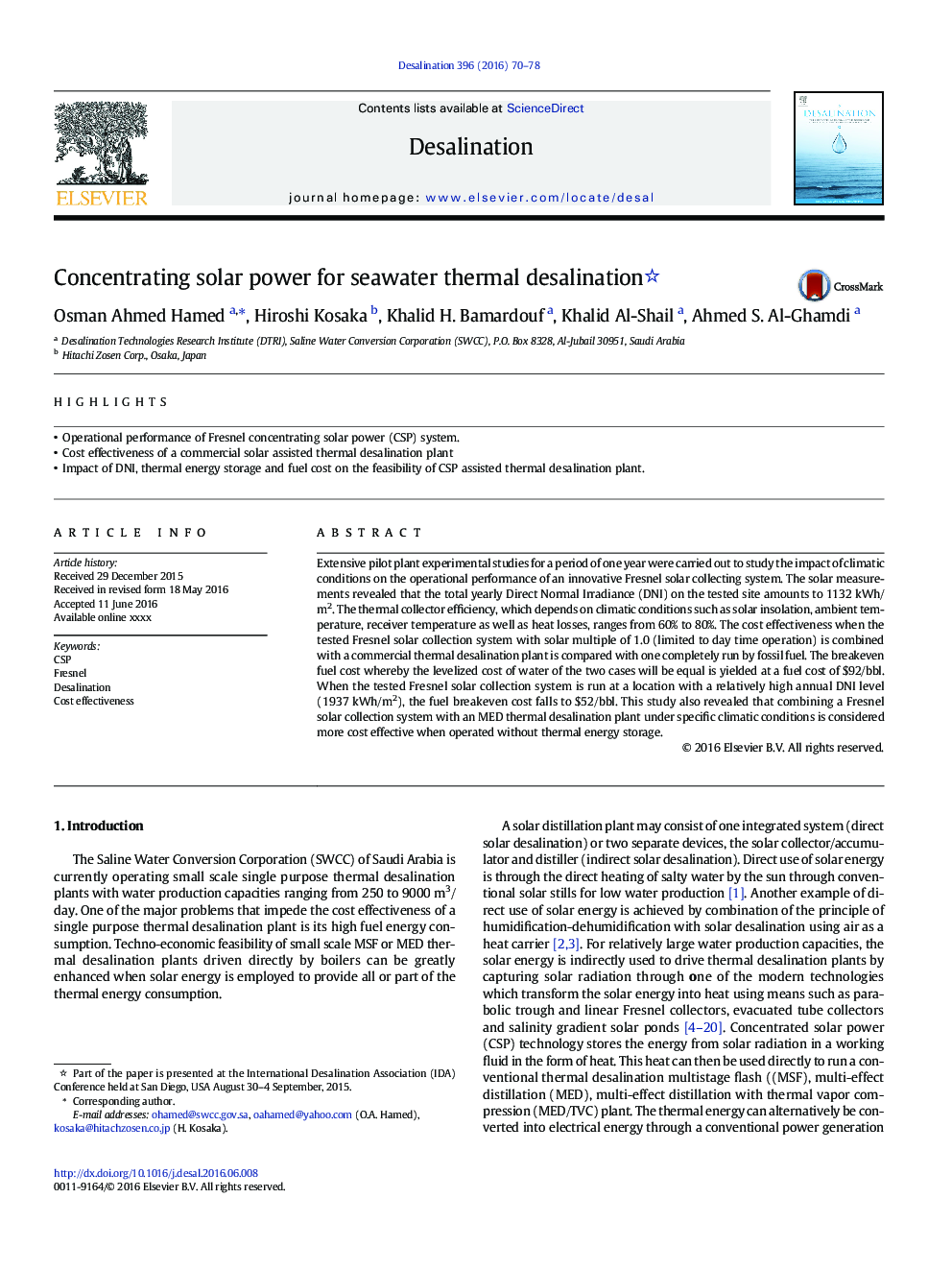| Article ID | Journal | Published Year | Pages | File Type |
|---|---|---|---|---|
| 622683 | Desalination | 2016 | 9 Pages |
Abstract
Extensive pilot plant experimental studies for a period of one year were carried out to study the impact of climatic conditions on the operational performance of an innovative Fresnel solar collecting system. The solar measurements revealed that the total yearly Direct Normal Irradiance (DNI) on the tested site amounts to 1132Â kWh/m2. The thermal collector efficiency, which depends on climatic conditions such as solar insolation, ambient temperature, receiver temperature as well as heat losses, ranges from 60% to 80%. The cost effectiveness when the tested Fresnel solar collection system with solar multiple of 1.0 (limited to day time operation) is combined with a commercial thermal desalination plant is compared with one completely run by fossil fuel. The breakeven fuel cost whereby the levelized cost of water of the two cases will be equal is yielded at a fuel cost of $92/bbl. When the tested Fresnel solar collection system is run at a location with a relatively high annual DNI level (1937Â kWh/m2), the fuel breakeven cost falls to $52/bbl. This study also revealed that combining a Fresnel solar collection system with an MED thermal desalination plant under specific climatic conditions is considered more cost effective when operated without thermal energy storage.
Related Topics
Physical Sciences and Engineering
Chemical Engineering
Filtration and Separation
Authors
Osman Ahmed Hamed, Hiroshi Kosaka, Khalid H. Bamardouf, Khalid Al-Shail, Ahmed S. Al-Ghamdi,
